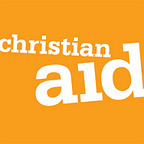After Haiyan: “Bayanihan” Savings as an Empowerment Tool
When disaster strikes, many lives and properties are damaged and at some very bad point, everything is lost. It is difficult for the affected families to get up and start again. Often, the only way they can recover their assets is through external assistance, personal savings, investments and social benefits and other safety nets.
When the strongest typhoon of 2013 hit Tacloban City, Typhoon Haiyan — locally known as Yolanda — there was massive destruction to livelihoods and community structures were not spared.
Urban Poor Associates (UPA), a local non-government organization, began organizing the vulnerable families along the coasts of San Jose and Magallanes Districts of Tacloban City. These areas are inhabited by the poor fisher folk families who mostly do subsistence fishing.
When the weather is fair and the waves are calm, fishermen can afford to go out into the sea for one whole night. The catch, however, is no longer as good as it was ten years ago — fishes are dwindling in numbers. Most of the time, their catch is only enough to feed the family, and there is nothing left to sell in the markets. Wives, meanwhile, are taking care of the children and fervently praying for the safety and security of their spouses’ return.
Ensuring people’s participation, UPA realizes the need for organizing these communities to voice their rights especially on land and housing, and act together to influence government decisions and equip them with knowledge and skills on disaster risk reduction. It is also important to help them restore their livelihood by supporting urban gardening, using Natural Farming System (NFS) to guarantee food on the table and by teaching community financial literacy for savings, as one of the essential factors leading to enterprise development.
Funded by Christian Aid, UPA’s approach cuts across age, gender, faith and culture. UPA believes rebuilding lives include not just physical houses but also reviving destroyed livelihood of the affected families. UPA creates a resilient community using all of these strategies.
Why Financial Literacy?
Many of us put less value than we should on the money we earn. As long as we have met the budget, most of the time we buy things that are not necessary. This is the basic reason why UPA introduces financial literacy to partner communities who are recuperating from disaster. UPA wants to help improve people’s spending habits by teaching them household budgeting and simple practical guidelines on savings and investments. Financial literacy is the stepping stone to kickoff community savings.
What is “Bayanihan” Savings?
Bayanihan savings is an economic scheme UPA introduces to the Typhoon Yolanda affected families in Tacloban City. This savings system is adapted from World Vision’s technology, Community-managed Savings and Credit Association (COMSCA). On the ground, people call it Bayanihan Savings, which mean savings from the entire community.
The organized Homeowners’ Associations (HOAs) are grouped into Bayanihan Savings clusters, usually composed of 20–25 members and elect their savings officers — — chairperson, record keeper, box keeper, 2 money counters and 3 key holders. The chairperson leads the savings session. Individual passbooks and financial records are taken-cared of by the record keeper. The box keeper ensures the safety of the box where all the savings including various funds as loanable fund, association fund, social fund and the profit from the enterprises are being kept. The money is placed into different pouches together with other savings kits (record book, calculator, passbooks, money bowls). The savings box is secured with three padlocks where all the keys are distributed to three key holders.
Key holders must not be related to one another. The box cannot be opened without them. Moreover, the two money counters check and validate all the money that comes in the savings box. Each Bayanihan Savings cluster has its own savings policy drafted by all the members meeting regularly. UPA assigned community organizers to monitor the efficiency of the Bayanihan Savings systems of all the clusters regularly.
Why a Tool for Economic Empowerment?
Bayanihan Savings promote community economic empowerment by allowing people to save, create association funds and manage profit for their enterprises. These reserve funds, enhance the confidence and image of the urban poor knowing that they have their “own” available savings, minimizing debts from 5–6, a colloquial phrase for loan sharks or usurers.
Also, through social funds or “damayan funds,” neighbours now help their co-members in times of emergencies such as sickness, death and disaster. For instance, the organized community in Mahusay Beach, Barangay 88, Tacloban City was able to help Angelica Reyes, a single mother who gave birth to her baby at dawn by utilizing the social fund in their savings box as payment for the midwife’s fee for her labour. The neighbourhood came to assist her, which is very different to previous times, when neighbours did not care or bother with one another. Most of all, they no longer need to worry about where they’d get the money from, for something like Angelica’s delivery.
With Bayanihan Savings, partner communities can also invest in small individual businesses. Riza from Sitio Balanak, Barangay 89, San Jose was able to borrow on her savings cluster. She will use her borrowed money as starting capital for her husband who used to sell “puto” or rice cakes.
Even during disaster, people’s capacities and skills are not taken away. Through confidence building using community organizing and restoring livelihoods, UPA provided an enabling environment for the affected families to get involved in planning how to work again, how to implement their community plans, start savings with small, increment amounts, allowing the families to stand up and regain their self-confidence.
This blog was written by Ivy Shella Espineli-Pagute, Urban Poor Associates (Christian Aid partner), Philippines.
